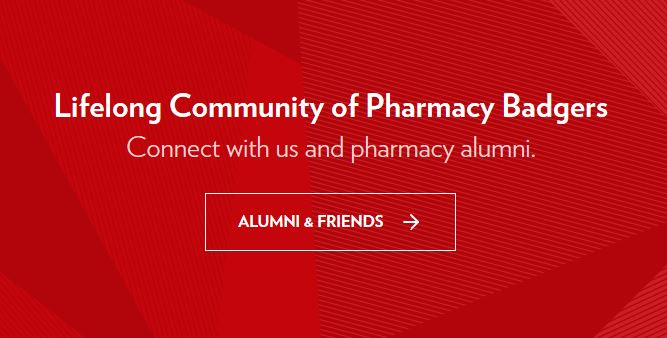Our alumni are working on the front lines of the pandemic and experiencing the impact of the public health crisis firsthand. Here are some of their stories in their own words
Share your COVID-19 story
How has the COVID-19 pandemic affected your work?
Whether you’re working on research, offering testing, administering vaccines, or have otherwise revamped your workflow to accommodate changes, let us know.
Tell us here >
Paul Winger (BS ’90)
Owner, LTC Rx in Chippewa Falls and The Medicine Shoppe Pharmacies in Chippewa Falls and Memonomie
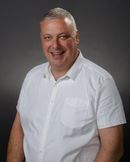 I have worked in pharmacies for over for 35 years and for 31 of those years as a pharmacist. I have to say that giving COVID-19 vaccinations has been the most rewarding experience I have had as a pharmacist. What I want to share with you is an experience I had when I went to an elderly housing facility that we service from LTC Rx.
I have worked in pharmacies for over for 35 years and for 31 of those years as a pharmacist. I have to say that giving COVID-19 vaccinations has been the most rewarding experience I have had as a pharmacist. What I want to share with you is an experience I had when I went to an elderly housing facility that we service from LTC Rx.
I was giving a COVID-19 vaccination to a 90-year-old lady. As I was giving her the vaccine tears were streaming from her eyes and she said to me in a choked up voice, “I am so glad you are finally here to give me this vaccination. I have had three of my good friends die in the last two months and I have not been able to hug any of my family members in a year.”
I had to hold back tears as she told me that. When this wonderful lady told me that I felt more proud of being a pharmacist than at any other time in my life!
Read more about Winger’s work developing a rural COVID-19 vaccination program >
Back to top
Ron Scherer (BS ’71)
Home health caregiver
 Throughout the COVID-19 pandemic, I have worked as a home health caregiver for elderly clients.
Throughout the COVID-19 pandemic, I have worked as a home health caregiver for elderly clients.
Since that qualified me as an essential healthcare worker, I was able to be vaccinated in the highest priority group. I received my second shot of the Moderna vaccine on February 9th and I’m feeling fine.
Back to top
Gregory Schuenke (BS ’73)
Returning from retirement
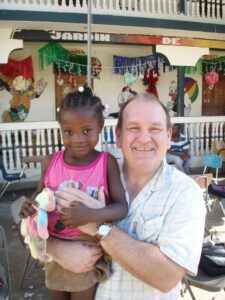 The COVID-19 pandemic requires a massive effort from our healthcare professionals, including those of us who have retired. I have reinstated my pharmacist license, completed the APhA immunization certification, and plan to help out wherever I am able to vaccinate our Wisconsin communities.
The COVID-19 pandemic requires a massive effort from our healthcare professionals, including those of us who have retired. I have reinstated my pharmacist license, completed the APhA immunization certification, and plan to help out wherever I am able to vaccinate our Wisconsin communities.
I am also considering trying to mount an effort to bring vaccinations to Haiti this year as part of trying to help those who may be forgotten in concert with Vision of Hope Ministries, Inc.
Back to top
Valerie Schend (BS ’82)
GHC Clinical Pharmacist / UW-SOP Clinical Instructor, Allergy/Asthma Research
I am enrolled in the UW Astra Zeneca COVID vaccine study. I have received both treatment injections with no adverse effects (well, my arm was a little sore, similar to a tetanus shot). I wanted to get on board as soon as possible since this disease has caused so much morbidity and mortality. And a vaccinated population is the best way to treat this. Due to my status as 1A, I was able to be unblinded, and fortunately I received active vaccine and not placebo. So I will continue in the study and they will be able to determine antibody production, length of protection and add to the body of evidence for this vaccine. My collection of masks has grown exponentially — of course a special mask for each holiday. Hope I don’t need one for the 4th of July! We need to keep up the good work taking care of our patients, and ourselves.
Back to top
Anthony Ball (BS ’90)
Pharmacist, CVS Health
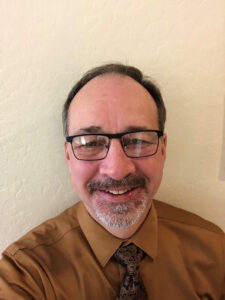 It’s unclear when exactly the COVID-19 pandemic will end. However, for at least for one day this January, a long-term care facility in Scottsdale, Ariz., got a glimmer of hope of what the future holds.
It’s unclear when exactly the COVID-19 pandemic will end. However, for at least for one day this January, a long-term care facility in Scottsdale, Ariz., got a glimmer of hope of what the future holds.
On Thursday 1/7/21, one of CVS’ COVAX Teams ascended on Plaza Healthcare LTC and held another COVID-19 vaccine clinic day. While most of the providers had attended a clinic before, this was my first. I was excited and a little nervous before I got there. By the end of the day I realized that I was saving lives and helping end a pandemic one vaccination at a time. Here’s my recount of my involvement and observations of a truly gratifying experience.
It’s important to note that nursing homes and staff are among the Phase 1A designation in the state of Arizona for prioritized vaccine distribution. I’m not sure of the exact number of doses administered, but it was estimated beforehand that about 350 doses were to be administered between 128 residents, facility staff as well as other employees. It was very well planned, as I got the last dose available!
What you cannot imagine are all the behind the scenes preparations that are necessary for about an eight-hour clinic.
First, the residents, before the clinic day, were screened prior to the the vaccine injection, getting approval from powers of attorney when necessary. Plaza Healthcare then scheduled enough monitors for each room to monitor the patients for 15 minutes after immunization to watch for adverse reactions.
On the day of the the clinic, we started with the LTC personnel. The facility, which has no COVID cases, made sure that each staff member receiving the vaccination went to a separate room for at least 15 minutes to make sure no issues arose. The hardest part about this session was all the paperwork that needed to be completed.
After lunch we gathered our vaccine and supplies and put them on carts to go to each patient and immunize them in their rooms. For this part most of the paperwork was already completed. Also, we had enough staff so that a few providers drew up the vaccine and the rest of us administered it. One thing to consider was for about half the patients, the immunizers needed to gown before entry into their room and then degown before leaving.
I’m sure that Plaza Healthcare is going to continue its strict and very successful COVID safety protocols, which also include a sniff test and a questionnaire. However, I could sense that the staff, administration and, most importantly, the residents could see a light at the end of the tunnel.
All in all, the clinic went surprisingly smoothly and rather quickly. I think it was in large part to the symbiotic way the Plaza Healthcare’s staff and our team worked together. We all were laser focused on what the main goals were: preserving life and returning to a sense of normalcy.
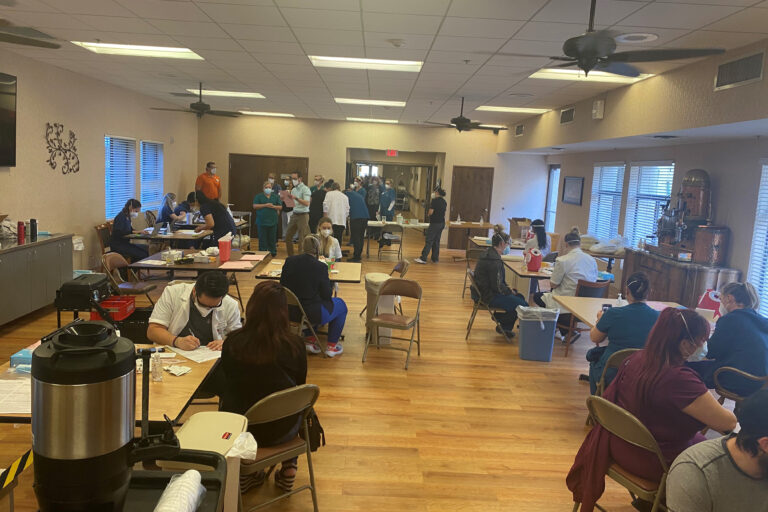
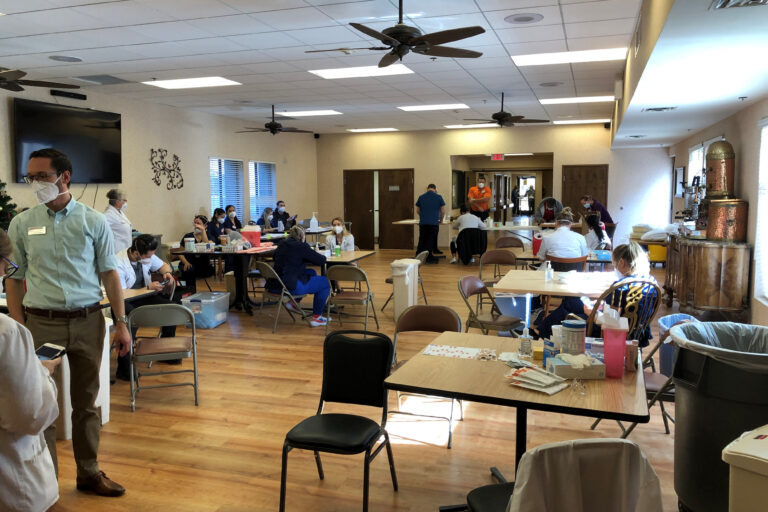
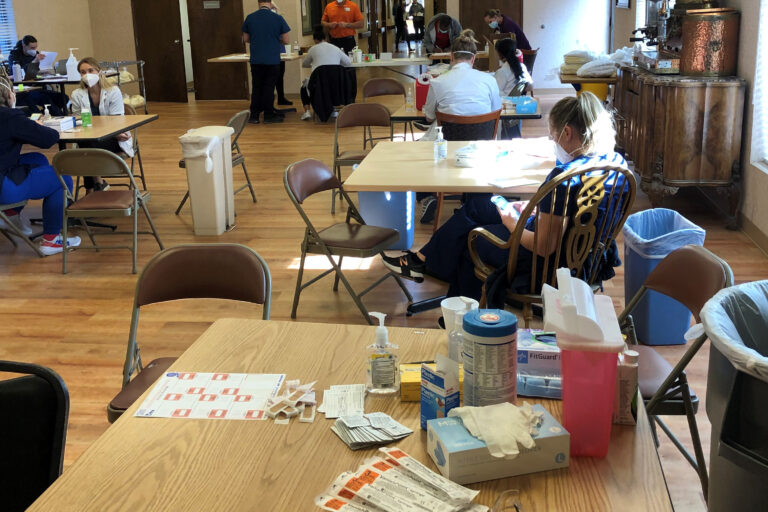
David Katz (PharmTox ’91)
Valley Anesthesiology Consultants
One of my roles as an anesthesiologist is head of trauma anesthesia at Banner University Medical Center Phoenix, one of the largest level one trauma centers in Arizona. Besides dealing with traumas, our service is responsible for placing breathing tubes throughout the hospital so that patients can be placed on ventilators. I have coordinated volunteers from my group to staff an additional individual 24-7 specifically to handle our hospital’s growing need to put COVID patients on ventilators. With so many people practicing social distancing, our traditional trauma volume is down significantly. This has afforded us to dedicate two individuals, and sometimes more, towards treating the most critically ill patients during this pandemic.
Back to top
Heidi Voss (PharmD ’14)
Pharmacy Manager at Cordova Community Medical Center Pharmacy
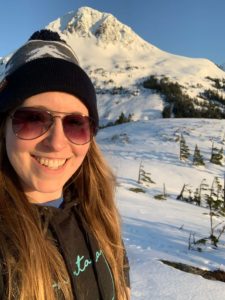
Cordova Community Medical Center Pharmacy is located in a Critical Access Hospital in Cordova, a small, remote, off-the-road-system fishing town in Alaska. As the only pharmacist at the only pharmacy in town, I provide a critical service to our 10 nursing home residents and our approximately 1,500 year-round residents. Soon our seasonal fishermen and cannery worker influx will begin and swell our population to approximately 5,000. This influx of outside workers poses a problem for our small, isolated community during this pandemic. Our town is working tirelessly to come up with solutions to prevent our community from getting sick and overwhelming our small hospital and the Alaska medevac services.
The pharmacy is currently providing mostly curbside pickup. We clean incessantly, wear masks at all times, and have filled extended supplies of meds for our communities most at risk patients. We hope this will help keep them at home, and help in case I were to get sick and we needed to close the pharmacy for a short while. We do temperature and health checks daily, and my only technician has been out of the pharmacy for a week due to a slight fever and us being very cautious. We are doing everything we can to keep ourselves healthy and the pharmacy open for the community!
The City of Cordova and the State of Alaska have issued several health mandates to help keep our population healthy, and most people are following them. Many customers are wearing masks, many made by volunteers in the community. We are hoping to be a donated homemade mask distribution center at the pharmacy soon. The community of Cordova is coming together to keep us all safe and healthy, and I am glad to be doing my part! We are fortunate in that we have an abundance of outdoor space to recreate while social distancing, and I am fully taking advantage of sunny days to do so, as well as many other Cordovans. I encourage all UW Alumni to get outside!



David Hager (PharmD ’05)
Director, Clinical Pharmacy Services at UW Health
 As an inpatient clinical leader at UW Health, everything about the type of professional work changed, but the how became more simple in many ways. It was amazing to see how quickly everything moved when we reduce from 100 priorities to 1. Everyone had an approach of “how can we make this work” as new units were created in a day or new workflows that would take a year to implement in a non-pandemic took a day. I often said one COVID day is worth one year of normal organizational time — seeing in our department how much can get done when an entire organization is directed toward preparing for one type of clinical care.
As an inpatient clinical leader at UW Health, everything about the type of professional work changed, but the how became more simple in many ways. It was amazing to see how quickly everything moved when we reduce from 100 priorities to 1. Everyone had an approach of “how can we make this work” as new units were created in a day or new workflows that would take a year to implement in a non-pandemic took a day. I often said one COVID day is worth one year of normal organizational time — seeing in our department how much can get done when an entire organization is directed toward preparing for one type of clinical care.
The first two weeks was focused on protecting our employees by finding new ways for them to work from home, redoing workflows for discharge medications to promote patient safety, partnering with the UW School of Pharmacy to manufacture needed hand sanitizer, creating new methods to communicate with employees with the rapid changes, and arranging for a future workforce by redesigning our student experiential training so all our students could graduate. Being a part of a great team of leaders who were willing to continue to sacrifice for their pharmacist colleagues was the difference. Today, we are in a much more prepared place, grateful that thus far our preparations have worked, and the surge has not yet arrived.
Back to top
Nick Ladell (PharmD ’11)
Director of Pharmacy at Aurora West Allis Medical Center
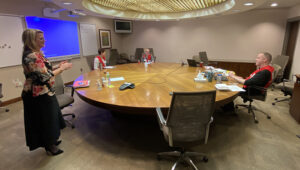 In the Fall of 2019, I was approached by my hospital president to lead our Emergency Management Committee. After a short discussion, I accepted this new and interesting responsibility thinking that the new role wouldn’t be too much of a burden. In a few short months, I learned that I greatly underestimated the immensity of this new role. This opportunity would have me facing one of the greatest challenges of my career.
In the Fall of 2019, I was approached by my hospital president to lead our Emergency Management Committee. After a short discussion, I accepted this new and interesting responsibility thinking that the new role wouldn’t be too much of a burden. In a few short months, I learned that I greatly underestimated the immensity of this new role. This opportunity would have me facing one of the greatest challenges of my career.
Starting in early March, my role evolved from being our Emergency Management Committee Lead to being our COVID-19 Incident Command Team Commander. In a matter of days, our Command Team and entire hospital leadership team was working night and day to prepare and respond to this national crisis. We doubled the capacity of our Emergency Department. We tripled our intensive care and inpatient bed capacity. We mobilized labor resources, logistical resources, supply chains resources, and many more resource like never have before. It was difficult, rapid, and draining, but in the end we were able to continue to provide great care to our patients.
As of this week, it seems that we have reached the peak/plateau. Unfortunately, we have lost patients to the fight, lost team members to quarantine, and lost time with family and friends, but I know that my training and fine UW–Madison education helped prepare me to serve and lead in this moment, and I couldn’t be more grateful.
On, Wisconsin.
Read more about Ladell’s work leading the Incident Command Team >
Back to top
Susan Stein (BS ’90, MS ’99)
Professor Emeritus of Pacific University and Managing Member, Sue Stein Consulting LLC
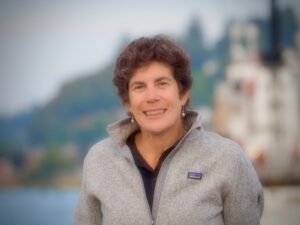 As a consultant, the various pharmacy programs I support have incorporated me into all of their experiential education brainstorming: how to address pharmacy student learning and faculty practice while supporting their communities. While the pandemic is a tragic public health crisis, pharmacists and pharmacy students are positioned to make a significant positive impact now and in the future.
As a consultant, the various pharmacy programs I support have incorporated me into all of their experiential education brainstorming: how to address pharmacy student learning and faculty practice while supporting their communities. While the pandemic is a tragic public health crisis, pharmacists and pharmacy students are positioned to make a significant positive impact now and in the future.
As a Badger pharmacist, I have contacted the Providence St. Joseph Health System to rejoin the clinical world and support them and our community as an anticoagulation pharmacist in our rural community.
As a Professor Emeritus, I am supporting and guiding newer faculty in effectively using online teaching strategies to improve student learning, especially clinical skills learning.
Thank you again for the opportunity for us to connect and support each other.
Back to top
Richard Shepard (BS ’84)
Advocate Aurora Health at South Suburban Hospital
My role has changed from decentralized to centralized. We are now batching out critical care medication every 3 hours. We have 19 ventilators in ICU. Our ASC and PACU units were converted to ICU. We currently have 42 ventilators total. Most of the clinical staff are working 10 to 12-hour shifts. We are batching fentanyl, versed, norepinephrine drips to meet the demand.
Back to top
Mark Rogge (BS ’82, MS ’84)
Global Head and Vice President of Translational Sciences at Takeda Pharmaceutical Company Limited
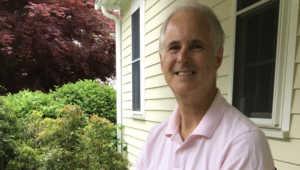 Mark Rogge says the pursuit of transformative COVID-19 therapies at Takeda Pharmaceutical Companies Limited has become his second job.
Mark Rogge says the pursuit of transformative COVID-19 therapies at Takeda Pharmaceutical Companies Limited has become his second job.
“It’s been exciting and has made my multifaceted role even more challenging,” he says. “We’re still fully focused on keeping our original portfolio moving forward in each therapeutic area, and now, we’re trying to make the COVID-19 opportunities in our portfolio just as successful.”
LEARN MORE ABOUT WHAT ROGGE AND TAKEDA ARE WORKING ON >
Back to top
Tom Dilworth (PharmD ’10)
Infectious Diseases Pharmacist at Aurora St. Luke’s Medical Center
In addition to engaging in lots of COVID-19-related work and preparation within my health system, I presented an update on ACE inhibitors, ARBs and NSAIDS for the Society of Infectious Diseases Pharmacists.
I also penned some COVID-19 talking points for PSW members to share with the contacts outside of healthcare , and co-presented a webinar on COVID-19 for PSW on 3/31/20.
Back to top
Chunxi Zhou (PharmD x’21)
Pharmacy Intern at Walgreens Pharmacy
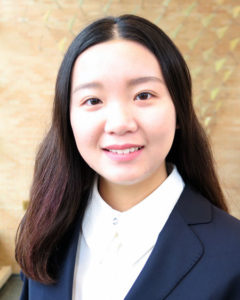 The pharmacy is encouraging patients to make use of drive-thru to limit face-to-face contact and to maintain a social distance that will help control transmission. Patients are also able to get in-store supplies and Sudafed-containing product from the drive-thru.
The pharmacy is encouraging patients to make use of drive-thru to limit face-to-face contact and to maintain a social distance that will help control transmission. Patients are also able to get in-store supplies and Sudafed-containing product from the drive-thru.
The pharmacy is currently encouraging use of masks among employees (plan to dispense 3 masks to each employee per week) and is thinking of setting up a physical barrier at the front window. Pharmacy hours changed from 8 am-10 pm to 9 am-9 pm to spare one hour exclusively for disinfecting and cleaning the pharmacy before and after work every day.
Back to top
Share Your Story for History
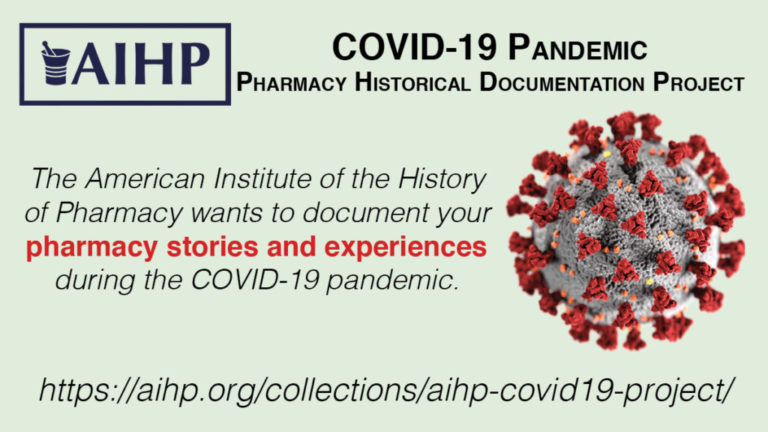
The American Institute of the History of Pharmacy is documenting and preserving stories and experiences during the COVID-19 global pandemic for the benefit of future historians and scholars.
We seek to record the effects of this public health emergency on all types of pharmacy experiences, including community pharmacists, hospital pharmacists, military pharmacists, pharmacy educators, pharmacy students, pharmacy customers/consumers, pharmacy regulators, and pharmaceutical manufacturers.


